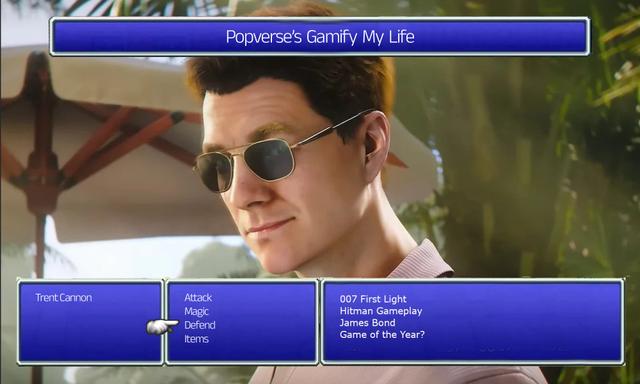If you click on a link and make a purchase we may receive a small commission. Read our editorial policy.
The meaning of morality in A.X.E.: Judgement Day
A.X.E.: Judgement Day #1: Marvel’s Postmodern Prometheus

Last week marked the arrival of A.X.E.: Judgment Day #1 by Kieron Gillen, Valerio Schiti, Marte Gracia, and Clayton Cowles, with a main cover by Mark Brooks and Sabine Rich. It features The Eternals, created by Jack Kirby, and the Avengers and X-Men, created by Kirby and Stan Lee.
In the final panels of the issue, the Avengers and the renegade Eternals have concocted a plan to combat the Holy War that will set the enfranchised Eternals against the mutants. They’re going to make a god capable of rewriting scripture and ending the war. But is rewriting scripture an immoral strategy, a viable plan of action, or a moral imperative?
The best laid plans of Avengers and Eternals

Additional context for the plan Ajak and Makkari propose to Tony Stark in the final panels can be found in Eternals: Celestia #1 by Gillen, Kei Zama, John Livesay, Matthew Wilson, Cowles, and Esad Ribić. In that issue, subtitled 'A Pilgrim’s Complete Lack of Progress,' information about the Progenitor, the Celestial in which the Avengers are currently headquartered, was detailed.
The Progenitor arrived at Earth four billion years in the past and promptly died, giving birth to “all that is strange on Earth via its pus and vomit.”
Ajak and Makkari traveled to Avengers Mountain and confronted Ghost Rider regarding the blasphemy that was being committed by Earth’s Mightiest Heroes. How dare the Avengers carve holes through the Divine Celestial?
However, Robbie Reyes revealed that there wasn’t actually any blasphemy being committed. The Celestials had given the Avengers permission to inhabit the late Progenitor.
The morality of rewriting religion
Is it immoral to rewrite religious tradition to serve your own ends? There are plenty of historical precedents. One such story is exemplified through the history of Christmas. While many take the trappings that are associated with traditional Christmas celebrations for granted, these traditions actually stem from Roman and Pagan rituals that were incorporated by the Catholic Church in order to sugar on the pill that is Christianity.
The rituals pilfered from the pagan traditions included the practice of lighting candles, bonfires, and other sources of light in order to ward off the darkness of the longest nights of the years. Such rituals form the foundations of the traditions of hanging lights on the house or tree to celebrate Christmas.
Roman tradition provided the time of year that Christmas is currently celebrated. While it is believed that the historical figure of Jesus was born at a different time of year, the celebration of Christmas migrated to midwinter in order to co-opt the Roman holiday of Saturnalia, a two-week festival honoring Saturn, their god of agriculture.
Earlier this month, in early July, I found myself stuck in traffic behind an SUV with just one bumper sticker. Beneath a stick figure-filled manger was the slogan, “Keep Christ in Christmas.” The statement implies that Christ is integral to the holiday, so much so that to remove him would be to remove the very foundation of the celebration. This message is so important that the owner of the vehicle feels it should be displayed to anyone driving behind them three hundred sixty-five days a year.
However, knowing the history of the holiday recounted above, it is plain that the essence of 'Christmas' is far from immutable. In fact, the original purpose of the elements of the holiday indicated by the bumper sticker began as rituals celebrating an entirely different deity.
Marvel’s postmodern Prometheus

The plan proposed by the renegade Eternals in the final panels of the issue can be viewed as analogous to the process through which Christianity co-opted elements of the religions that preceded it and redirected them towards its own ends. Rather than attempt to entirely replace the holidays to which the pagans and Romans already had an emotional connection, they instead took aspects of these celebrations and incorporated them into Christmas. In a sense, they 'rewrote' the unwritten scriptures of tradition.
By using the Progenitor to make their own god and rewrite scripture, the Eternals and Avengers may be able to execute a similar maneuver. The Progenitor is an integral part of the Eternals religion, just as the rituals described above were integral to the lives of the people who engaged in them.
Furthermore, by co-opting these long-held traditions, these traditions can be redirected towards goals that would have been unimaginable when the elements were originally put into motion. Clearly, the long-term effects of the Progenitor seeding all that is strange on Earth had not been foreseen by the Celestials, considering they had to dispatch several additional scouts to determine what had happened to it. This means that attempting to preserve tradition in order to honor some pure 'original vision' is a futile gesture.
A.X.E.: The long road to Judgment Day
While many of the previous issues leading up to A.X.E.: Judgment Day #1 were narrated by The Machine That is Earth, this issue was narrated from a new perspective. Based on the clues provided, it seems likely that the narrator of this issue is the deity proposed by Ajak and Makkari, hinting that they will succeed at their endeavor (at least in some sense).
Whether or not their plan will succeed and the newly made god will behave in the manner in which they desire remains to be seen. However, their motivations for creating the deity are morally sound. Given that the mutants are in danger of being destroyed because of the dictates of 'scripture,' and given that said 'scripture' was written during and about circumstances that have no relation to the current situation, there is no moral imperative that could justify preserving said scripture when the option to rewrite it exists.
Nevertheless, with so many issues remaining in the A.X.E. event (which runs until November), it seems unlikely that building the god will go exactly the way the conspirators have planned. Is it inevitable that Ajak and Makkari ultimately face punishment for bringing this fire to Earth’s mightiest heroes?
A.X.E.: Judgment Day #1 by Kieron Gillen, Valerio Schiti, Marte Gracia, and Clayton Cowles is currently for sale wherever you buy your comics.
Inside the Judgment Day event brewing between Avengers, X-Men, and Eternals with Kieron Gillen
Follow Popverse for upcoming event coverage and news
Find out how we conduct our review by reading our review policy
Let Popverse be your tour guide through the wilderness of pop culture
Sign in and let us help you find your new favorite thing.
















Comments
Want to join the discussion? Please activate your account first.
Visit Reedpop ID if you need to resend the confirmation email.